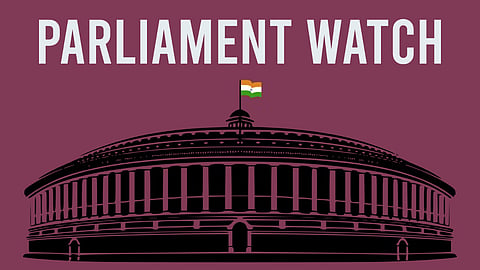
- News
- Columns
- Interviews
- Law Firms
- Apprentice Lawyer
- Legal Jobs
- हिंदी
- ಕನ್ನಡ

Day twelve of the ongoing 2021 Winter Session of Parliament witnessed responses on issues like details of persons arrested under the Unlawful Activities (Prevention) Act (UAPA), online investigation tracking system, and more.